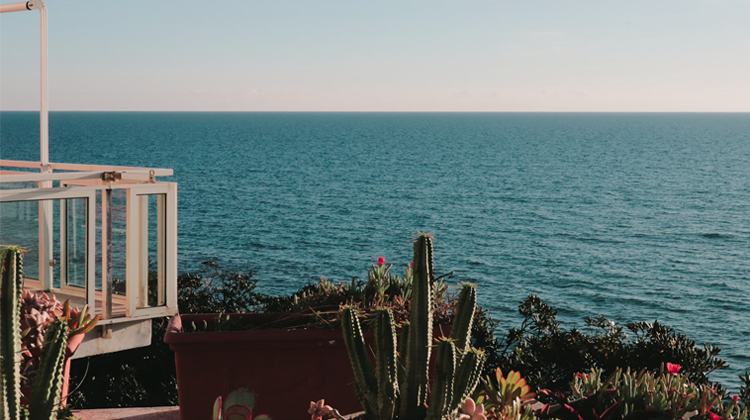Summer is at our doorstep: schools are closed, hot and sunny days are ahead, and long afternoons are spent at the beach. If you are travelling to Italy for the first time, you want to familiarise yourself with common summer expressions that may come in handy while visiting this beautiful and picturesque country of pasta.
Italian summers are known to be humid, hot, and touristy. Italians love to spend their time off at the beach with family and friends while enjoying typical summer dishes, drinking their limoncellos, or savouring a cone of gelato.
Here are 13 expressions that you don't want to miss if you are travelling to Italy and want to behave like a true Italian!
1.“Fa caldo” - It is hot
"Fa caldo" is a common expression used on a sunny day. Typically, it implies that it is very hot and humid.
2.“Ho preso le ferie da lavoro” - I took time off from work
"Ferie" means annual leave from work. "Ho preso le ferie da lavoro" is a common expression to say you are taking time off from work to go on vacation. "Ho preso" is the past tense, and "preso" comes from the verb "prendere," which means to take. In Italy, it is very common for Italians to be off in August during the time of Ferragosto.
3.“Mi faccio un tuffo in piscina” - I take a dip in the swimming pool
This expression means that you are about to jump into the swimming pool for a quick dip. "Piscina" is the word for swimming pool.
4.“Amo fare le passeggiate lungo la spiaggia” - I love walking on the beach
If you love walking on the beach, then this is the expression for you. The same sentence can be used to say you love taking walks along the lakeside. In this case, you would say: "amo fare le passeggiate sul lungolago."
5.“Domenica facciamo una grigliata insieme” - Sunday let’s do a barbeque together
Sundays are common days to spend time with family and friends, so why not spend it by having a "grigliata" together?
6.“Ho voglia di gelato” - I feel like having ice cream
If you are craving ice cream, then you must use the expression "ho voglia di gelato." "Voglia" comes from the verb "volere," which means to want.
7.“Il sole picchia” - The sun beats down
This expression is commonly used to describe a very sunny day. "Picchia" comes from the verb "picchiare," which also means to hit someone. For instance, one can say "Paolo mi ha picchiato," which means "Paolo has hit me" or "beat me up."
8.“Che bel tempo fa oggi” - It's a nice day today
This expression indicates how nice and sunny the day is. Even though the word "sunny" is not explicitly used, it is assumed that the weather is beautiful and the sun is shining.
9.“Mi puoi spalmare la crema solare per favore?” - Can you put some sunscreen on me, please?
If you are at the beach with family or a partner and you need to put on sunscreen but can't reach, you can ask them to put some on you. The verb "spalmare" literally means "spread" and can also be used when saying "spreading butter or jam on bread." For instance, to say "spread jam on the bread," you would say "spalmare la marmellata sul pane."
10.“Andiamo a sdraiarci al sole” - Let's go lie down in the sun
This is an expression used when you are heading to the beach and want to sunbathe. The use of "andiamo" implies that this action will be taken by more than one person. For instance, it could mean that you are inviting your friends to go along with you to the beach.
11.“Voglio trascorrere le giornate in acqua” - I want to spend my days in the water
Italians love spending their summers at the beach or swimming pool, and that's what the above sentence means. "Trascorrere" means to spend your day doing an activity.
12.“Oggi restiamo sotto l’ombrellone” - Today we will stay under the beach umbrella
This is an expression you would use when you want to avoid the sun or sunburn and protect yourself from the radiation. "Ombrellone" is the beach umbrella, derived from the word "ombrello," which means umbrella—the same object we use when it rains.
13.“Voglio abbronzarmi” - I want to tan today
"Abbronzarsi" means to tan or to spend the day under the sun. "Abbronzarsi" is a reflexive verb, which means that the action happens to oneself.
These are widespread summer expressions used by Italians in their everyday language. If you want to sound more Italian, then use any of the above-mentioned expressions. The list is not exhaustive, but these are very typical for someone who is spending their summer at the beach.
Tell me - which expression are you going to use the most?







